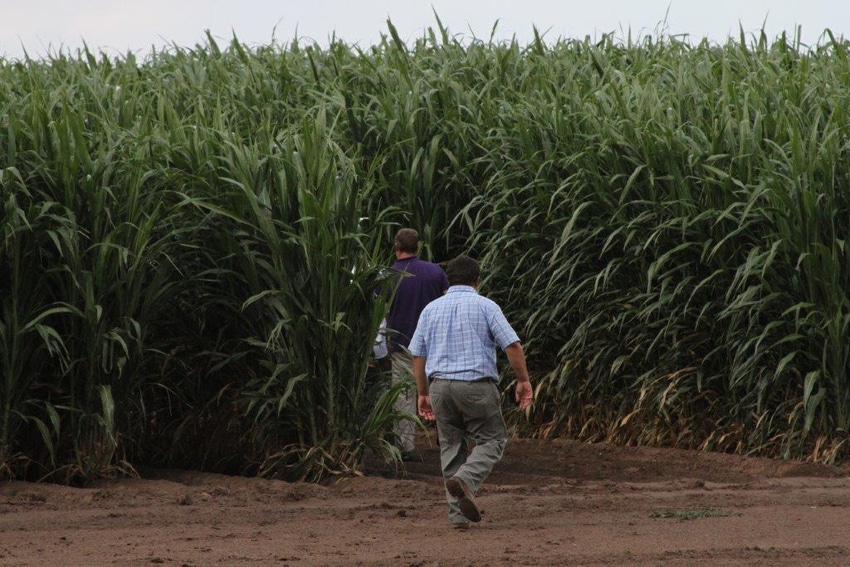October 17, 2016

The North Carolina Biotechnology Center, aided by a $1.87 million federal grant, has embarked on a three-year project to study the production of sorghum as biomass for fuel and high-value chemicals in the Mid-Atlantic region.
The project, involving scientists at two land-grant universities and numerous industry partners, is enabled by the grant to NCBiotech’s Biotechnology Crop Commercialization Center (BCCC). The award was the largest of seven announced by the U.S. Department of Agriculture (USDA)’s National Institute of Food and Agriculture (NIFA) and the Department of Energy (DOE). It’s also the only award that didn’t go to a university – a testament to the specialized capabilities and personnel at the predominantly state-funded Biotech Center.
“This three-year grant funding is a huge boost for advancing our ongoing partnership effort that will help farmers throughout the region add this important cash crop to their rotation plans, creating a ‘growforce’ for the development of a cellulose-to-biochemicals processing facility,” said Paul Ulanch, executive director of BCCC.
With this new grant, BCCC brings together North Carolina’s two largest economic drivers, agriculture and biotechnology, to maximize the fibrous sorghum stalk material for use as high-value feedstock.
NCBiotech disbursing funds to six researchers in North Carolina and Virginia
More than 90 percent of the grant funding will be channeled through BCCC to pay for research carried out by six investigators -- three from North Carolina State University and three from Virginia Tech. NCBiotech is coordinating the research activities, with guidance from the North Carolina Department of Agriculture and Consumer Services’ Bioenergy Research Initiative, the United Sorghum Checkoff Program, sorghum breeding programs and seed companies, farmer/grower networks, and companies in the cellulosic ethanol and specialty chemicals industries.
The BCCC award is part of a $10 million distribution of USDA/DOE grants in the federalBiomass Research and Development Initiative (BRDI), a joint program through NIFA and the DOE. The goal of BRDI is to develop economically and environmentally sustainable sources of biomass, increase the availability of renewable fuels and biobased products to help replace the need for gasoline and diesel in vehicles, and diversify the nation’s energy portfolio.
“Our investment in these projects will contribute to advancements in bioenergy research that will help protect our national energy security, reduce pollution, and bolster our energy supply,” said Cathie Woteki, under secretary for USDA’s Research, Education & Economics mission area. “Producing more renewable and bio-based energy can also revitalize rural communities with a new economic market and provide farmers a profitable and sustainable investment as well as an on-farm energy resource.”
Grants and national program leadership for the BRDI program will be administered by NIFA and DOE's Office of Energy Efficiency and Renewable Energy.
You May Also Like




